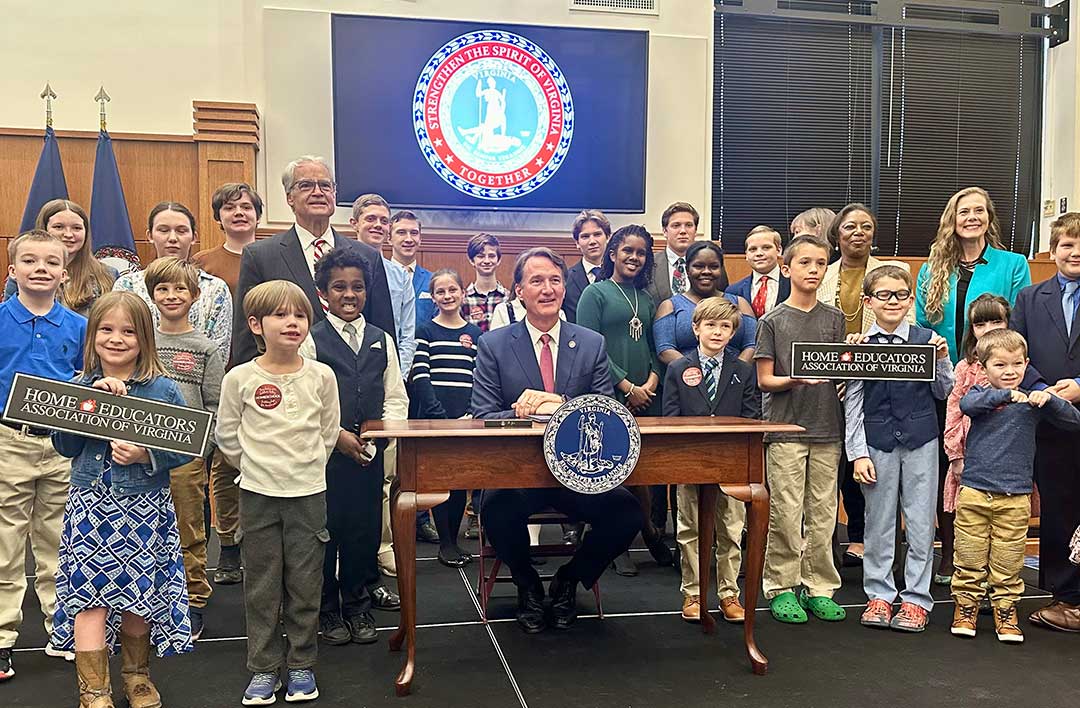When God Writes Your Lesson Plans
by Melissa Dean
I had it all planned. We would finish Unit One the Friday before my due date. My Unit Two plans would be ready before I delivered. We would take the week of the baby’s birth off and call it our fall break and begin school again the following Monday.
I worked hard to prepare. I graded papers and made copies for Unit Two. I labeled each week’s work with a pastel-colored sticky note; clipped the pages with large, bright, plastic-covered paper clips; and filed them in my drawer.
There was only one problem—nobody told the plan to the baby. She arrived two weeks early. The morning I awoke to discover my amniotic fluid leaking, I hurried downstairs and began scribbling lesson plans that would carry the kids through the week. We had to finish! I had planned it that way. If I could only leave enough plans to get us to the end of Unit One, then we could take our scheduled fall break, and we would be golden.
Instead my mother ignored my hastily scribbled lesson plans and immediately gave my kids their fall break. The following week— our supposed restart date—the baby was readmitted for jaundice. Fall break, week two, came and went. When school finally resumed, we were the parents of a sweet baby girl named Lydia who also happened to have Down syndrome and a congenital heart defect. My days were suddenly filled with doctors’ appointments, medicines, therapists, and a whole new world about which to learn.
This wasn’t the lesson plan I had written. It didn’t fit my carefully crafted agenda at all. I began our school year with lofty goals neatly typed out for each child. We had a schedule for each day that showed in neat little boxes of 30-minute increments what each child would be doing. Of course there would be an interruption when the baby arrived, but I had carefully scripted how that interruption would go. Instead here we were months later, accomplishing a fraction of what we had in our first two months of school.
My preschooler asked me daily, “When are you going to stop skipping my school, Mommy?” When my husband arrived home in the evening and asked how school went, my son would announce, “GREAT! Mom forgot my spelling AGAIN!”
I pondered the options—put the kids in public school, use their college funds to pay for private school, switch my homeschool methods (unschooling by default?), or resign my position (is that allowed?).
“My grandmother used to say, ‘If you want to make God laugh, then tell Him your plans.’” These lines from the movie Bella sum up our family’s past school year. As I write this article, we are approaching our “last week of school.” I use that phrase very loosely because each child has several things to finish over the summer. Between August and May, there were only two weeks that I was not at the hospital for some test, appointment, or procedure. Some weeks I was there every single weekday. Our sweet baby has been admitted twice, had one surgical procedure, and faces open heart surgery in the next six weeks.
In addition to her medical issues and therapies, the other children have had the typical viruses that plague a houseful of kids, as well as some unusual, but relatively benign, medical issues (a kidney defect, pneumonia, minor surgery to remove a cyst, and chronic croup, among others).
I pretty much skipped the rest of my daughter’s Pre-K school year. Her alphabet letters carefully constructed with construction paper, beans, and glue stop at the letter G—a visible reminder of our interrupted school year. My first grader’s science lesson plans halted abruptly in November never to restart again. My oldest daughter has about 20 weeks worth of history discussion questions that she completed, but never discussed with a parent. Work wasn’t evaluated in a timely manner and chores weren’t inspected regularly.
Those are just a few of the failures. A year like ours has a way of exposing character issues in the best of us, and my children, my husband, and I have definitely discovered several areas that need improvement. But I learned this year that One greater than I is also in the business of writing lesson plans and that His supersede mine. In fact, my plans pale in comparison to those scripted by the “author and perfecter of our faith.”
God’s Lesson Plans
God’s lesson plans for my children included having them learn that bad test results in a pregnancy just mean lots of extra trips to the doctor—not that the life being created isn’t worth bearing. He gave my oldest daughters the gift of witnessing the birth of their baby sister—a far more powerful lesson plan than the chapter on human sexuality and reproduction in their health textbook.
When we found out that Lydia had Down syndrome, God’s lesson plans included a crash course in this amazing population of individuals. We were shocked and deeply saddened to learn that babies diagnosed prenatally with Down syndrome are terminated at a rate of 90%.
The lessons from this experience are ongoing and numerous, and I have no doubt that my children will be better people from having been granted the opportunity to live with and love a sister with special needs. My children have watched their parents wrestle with difficult medical decisions related to Lydia’s heart and turn to science and medicine for intervention—without losing sight of the One who is truly in control.
As with the list of failures, the list of God’s lessons for our family could go on and on. So what do you do when God writes your lesson plans?
My children weren’t the only students in our homeschool this year. God had lessons for me as well—lessons that can’t be found in textbooks. Lessons about who is really in control (not me!), whose plans for my kids are best (not mine!), what a successful year really looks like, and how to cope when life gets hard. I am certainly no expert in crisis-management. I am not a superstar homeschool parent. I can render nothing more than some simple lessons learned from the curriculum God provided me over this challenging and humbling school year.
1. SURRENDER
God is God and I am not. We all claim to know this, but how often do we live as though it were true? I’m still a firm believer in having plans and goals. But the vision of a follower of Christ is always subordinate to His plans and His perfect will. Anything else is not a vision but an idol. I came very close to making idols out of my plans this school year. Fortunately, my loving heavenly Father had a lesSon plan that took care of that in my life, and it is a lesson I am not likely to soon forget. We can learn from Jesus’ mother’s example. “And Mary said, Behold the handmaid of the Lord; be it unto me according to thy word.” (Luke 1:38, KJV)
2. DECIDE WHAT IS CRITICAL
When our school year began to detour away from my well thought- out plans, I identified the essentials in our homeschool. My oldest daughter’s two high school credit courses were obvious choices. My son learning to read was non-negotiable. But, although science for my youngest two had been a priority before the baby arrived, it had to be relinquished for the remainder of the year. It just wasn’t critical for our four- and seven-year-old children to have formal science instruction.
3. BE RESOURCEFUL WITH LESSONS PLANS
My one-on-one time with my kids was cut drastically after our baby’s arrival. But, while I was tied up with nursing, therapies, or doctors’ appointments, we borrowed Jim Weiss story CDs from a friend, my youngest two listened to the entire New Testament dramatized on CD, and my second oldest daughter read countless classics in her unexpected free time. Both girls learned to cook meals and to care for a new baby. They also learned much about early intervention therapies for special-needs babies. While these weren’t in my lesson plan, I know they were valuable experiences for my kids. Perhaps they met goals loftier than some I had formulated for them.
4. USE TEACHABLE MOMENTS FOR LESSONS PLANS
All homeschoolers do this intrinsically; however, I began to award “credit” for the learning experiences that everyday life provided my kids this year. They watched an electrician rewire a room in our house one day. When the piano tuner completely took apart our piano and fixed several stuck keys, he had a rapt audience and the helping hands of three children. The children witnessed numerous medical tests, including multiple echocardiograms of Lydia’s heart—narrated by her gifted cardiologist. Baby birds outside our dining-room window provided a tragic but valuable lesson when our dog captured and killed the first one to leave the nest. As my daughter proclaimed, “My bird book says that only 50% of baby birds will make it.” Not a fact we wanted to see lived out, but instructive nonetheless.
5. AUTOMATE LESSON PLANS WHENEVER YOU CAN
One benefit of my planning was that my oldest child, who is in the independent-learning stage of her homeschool career, used the “syllabus” I had created for her and worked on autopilot even when I was away. Summer is a great time to create an assignment list that your child can use later. Leaving dates off and just numbering assignments allows for greater flexibility. Making copies of tests or other handouts in advance and keeping them in a file also saves valuable time. A schedule at least gives a loose structure to keep you going in the midst of chaos.
I passed a church sign a few weeks ago that said, “God does not call the prepared. He prepares the called.” This is certainly what He did with our family this year. Had anyone told me in August that my Quad screen would come back with “bad numbers,” that our baby would be born with Down syndrome, or that she would need open-heart surgery when she was eight months old, I would have crumpled to the ground in despair. But God, in His great wisdom, who knows me better than I know myself, has revealed His plans for me in small doses that were just enough to show how much I need Him, but not enough to break me completely.
People who glance casually at our family and see only the surface may be tempted to feel sorry for our trials, just as I am sometimes tempted to see our school year as a failure. It may surprise them to know, however, that we wouldn’t have it any other way. Someone could line up 500 “healthy” babies and tell me to take my pick. Someone could tell me there was a “cure” and Lydia doesn’t have to “suffer” with Down syndrome anymore. I would have to say, “No thanks.” My Teacher has taught me well this year, and I have no doubt that my life, though perhaps less beautiful by outside standards, less “successful” by traditional measures, and certainly less predictable than I anticipated, is richer by far than anything I could have hoped or imagined.
Melissa Dean is a freelance writer and editor, who is an AP English Instructor at Pennsylvania Homeschoolers and also works as an editor at Home Educators Association of Virginia (HEAV). She holds graduate degrees in English and literacy education and curriculum development, but hung her degrees over the changing table when her first child was born. She has learned far more about education from homeschooling her children than from any course she ever took.
This article was originally published in the 2009 summer edition of the Virginia Home Educator.
Read more homeschool encouragement articles here!









